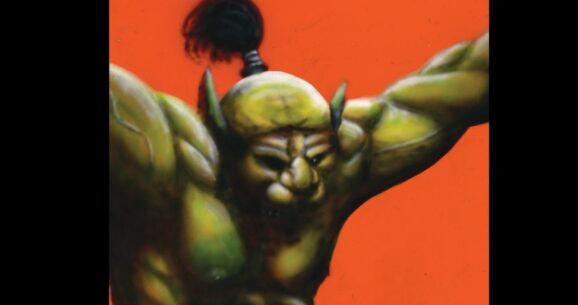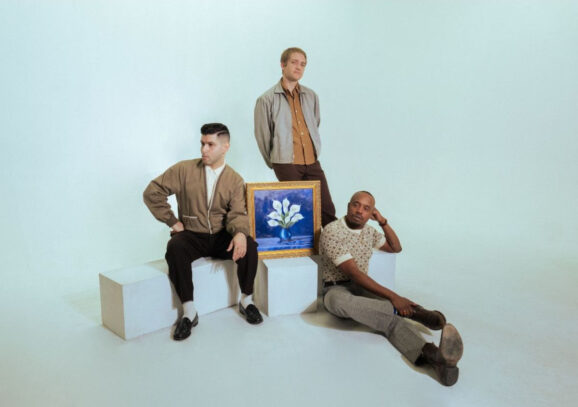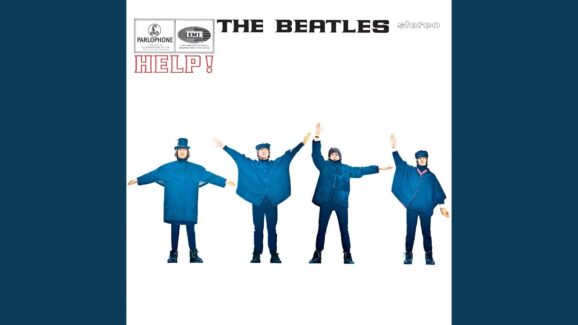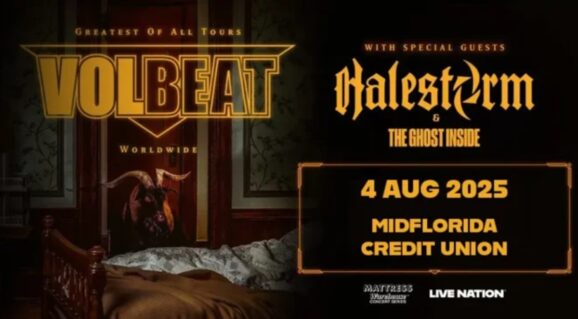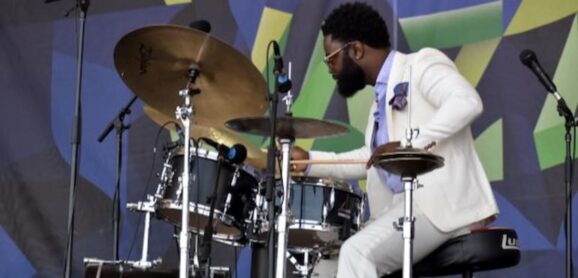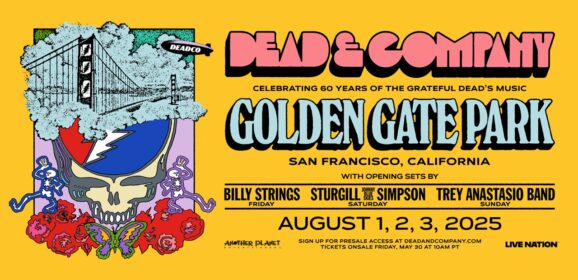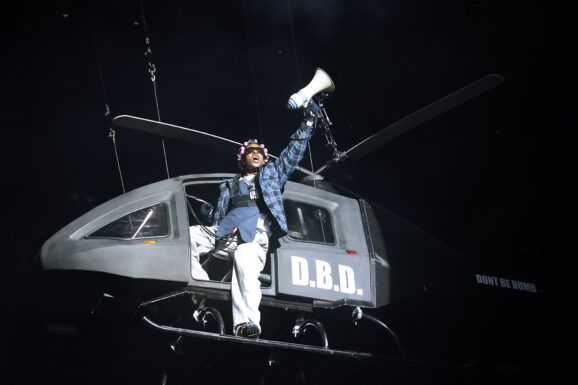Vashti Bunyan was a young songwriter and performer courted by Rolling Stones’ manager Andrew Loog Oldham in the late 1960s, with whom she recorded Jagger-Richards songs and her own pieces. On the verge of leaving this path behind, she undertook an overland journey by horse-drawn cart to the Highlands of Scotland to join a commune there and wrote her own songs along the way, which were later recorded as a full-length album that got no support upon release. She then left music behind.
Bunyan’s story of her life in and out of music has always been astonishing, but it only really began to be told when interest in her 1970 album, Just Another Diamond Day, caught the attention of a new generation of musicians and singer/songwriters around the year 2000. For an album that went almost totally ignored upon its original release, the reaction it is reissue was warm, encouraging, and conversational.
Thankfully, it led her not only to touring for the first time, but back to songwriting and recording, resulting in her albums, Lookaftering (2005) and Heart Leap (2014). She also produced on the latter album. Having begun her memoirs many years in order to share her largely silenced early life with her children, and adding her own drawings as an artist, Bunyan found no takers, however, a chance discussion with a friend during the pandemic period brought the project back to life. Wayward, Just Another Life to Live has been published in hardback in the USA from White Rabbit (Orion) and will arrive in a revised paperback edition later this year. I spoke with Vashti Bunyan about returning to songwriting and the experiences that brought her memoir back to life.
Hannah Means-Shannon: I know you’ve had quite a long journey in music, but also this book has had quite a long journey, too. I saw a reference to this memoir as something you have had in mind for a number of years, and maybe had an earlier draft.
Vashti Bunyan: I did. I think it was when I first got a computer, or word processor, around 1996. I thought I really should start writing this story for my kids because they really had no idea what their father and I had actually done when we were young before they were born. I started writing it, and I did some of the drawings that are in the book now. I sent that out to various publishers, and I got nothing back. [Laughs] I thought, “Oh, well, I’ll leave that.”
Then I got involved in the reissue of Just Another Diamond Day over the next few years. When that happened, I got completely immersed in music again. I occasionally got back to writing the story, and doing more drawings, but just for myself. It wasn’t until the beginning of lockdown that a friend asked me what I was doing. Rather than saying, “Nothing,” I said, “Oh, I’m writing.” Which was a lie. [Laughs] He said, “Oh, I know a publisher who’d be very interested.” He introduced me and we made a book over the next couple of years. It was a long time, but what I have put in the book now is not what I would have written back then, so it was a long process.
HMS: I’ve spoken to musicians who have spent time away before, and the idea of coming back to both songwriting and touring must have been a huge leap due to the public aspect of that. Was that terrifying? I found going out in public after lockdowns hard, but it must have been such a bigger thing for you.
VB: I think I was so overwhelmed by the response to Diamond Day, and then to my second album, 35 years after the first, Lookaftering, and getting together with other musicians, that I kind of just did it, and didn’t really think. I was terrified the first few times I went on stage, I was visibly shaking. I asked a friend of mine the same question, “How do you get to be so brave?” And he said, “You just do it until it doesn’t terrifying you anymore and you can enjoy it.” And that is what happened. The 20 minutes before going on stage are still scary, and I always say to my partner, “Why did you let me do this?”
In all of those years when I left music behind, I could never have imagined myself getting onto a stage. It was bad enough answering a telephone. Recording a phone message was terrifying to me.
HMS: Even people who had spent crazy amounts of time touring, after being after the road for two years, have found it difficult to start back.
VB: It was a big deal coming out of lockdown. It was a huge surprise to me how much I didn’t actually want visitors, how much I didn’t actually want to be around people. I was perfectly happy to stay in. Making that transition has been hard for a lot of people.
HMS: When it came to writing your more recent albums, when you started writing and recording, was that also a strange transition for you? Or did it feel quite natural?
VB: The first time that I stood in front of a microphone in a studio again was with “Piano Magic” around 2002. I didn’t even know if anything would happen. I didn’t know if I could sing. When I found that I could, it all came back. It was like opening a cupboard and finding it was all still there after all those years. I was so happy. I was ecstatic. I came out of that studio and called my daughter, and said, “I want to do this again. I want to write some more. I want to make some more records.” I didn’t think it was possible, but that was the seeding of it, that it didn’t terrify me anymore.
HMS: That sounds transformational, because you’ve indicated that you had a resistance and a fear to having anything more to do with music. As a person, do you feel quite different now?
VB: Oh, completely different. It’s like living a different lifetime, and I feel very fortunate to be able to get back to something that I had left so comprehensively behind me. All of that time, after Just Another Diamond Day came out in 1970 and was completely dismissed and ignored, I thought, “I’m not good at it and I shouldn’t be doing this.” And I didn’t for another 30 years. I didn’t think of myself as a musician. There must have been something inside that made me incredibly envious of musicians and feel rejected by that whole world. So I rejected it in return. That was me then. A very different me now.
HMS: In some ways this is a sad thing, but so many people in music and in other creative fields could relate to your story, even if they haven’t been through such an extreme break with their work. I think that’s one of the reasons that it’s so great that you’ve written this book, to share that.
VB: Yes, I think so. For me, I didn’t feel that my work had value in the first place. I’d tried so hard to make it happen, and it hadn’t. That seemed to say to me that there was no value in it. I never felt so possessive of it back then, but I do now. If somebody else plays one of my songs now and plays the chords wrong, I get really upset! [Laughs]
HMS: I think you have endless claim to do that because you’re making up for lost time. People have performed your music now, and sampled it, and all kinds of things. You also mentioned collaborating with other artists, so you now have all these musical relationships.
VB: It all feels very new. When Just Another Diamond Day came out again in 2000, I thought the same thing would happen to it, that it would be dismissed as nursery rhymes and just lightweight nonsense. When it didn’t get that response, that changed something in me. To read and hear what people were saying about it is what I so wanted people to understand back in 1970.
The people who were excited about it in 2000 were the kind of age that I was when I wrote the songs. They understood. It gave me great hope that there’s a progression and the future will be alright. Things will get better.
HMS: Do you mean that generations are becoming more open and more thoughtful?
VB: I think so. What do you think?
HMS: I think that’s true. I think they are definitely more musically open. Every generation has its problems, but people seem to be getting more empathetic as we go along.
VB: The difference to my generation is significant. We thought that we were wonderfully empathetic and open, but relationships and interpersonal empathy were not as developed as now. Young people that I’ve met seem to have an innate inability to put themselves in someone else’s shoes in a way that my generation could not.
HMS: What sort of responses to your music have you had that have been meaningful to you?
VB: I’ve had some wonderful responses to my music, but one in particular was from an autistic child who didn’t speak, but he knew all the words and could sing all of the songs from Diamond Day. That really got me. People have also told me that it makes their fretful babies go to sleep. People have said that when they were really troubled, the music can help to calm things down.
I think that’s why I wrote the songs for Diamond Day, to calm me down, and to keep myself going. Maybe that’s what’s coming across in them. I think that’s another big difference to me, now, is the feedback. I didn’t have any of that back then. The songs weren’t played on the radio and I didn’t have any live performances, so nobody spoke about it at all. I also didn’t keep any of them. But the feedback reached me in 2000 because of the internet. What a difference!
HMS: I did wonder how you felt about the internet and the access people have to make and share music now. It has all of its problems, including the difficulties making money from one’s music on the internet, but what we have now is the ability to make and share our own music. We can find communities and create a conversation. It’s more of an open door.
VB: Yes, I’m sure that makes a difference because there’s always hope. It used to be that if the door closed, it was closed. Now, there’s more opportunity for maybe a different door to open. I like that about the way things are now. I really hope it gives people the opportunity to feel that they are okay. That’s another thing that I really have learned, and wish I had learned when I was younger, is not to compare myself with other musicians. That each musician is totally unique. If only I could’ve felt that. I hope that people who are trying now to bring music to anybody, somebody, will feel that it has value. The internet has certainly made that possible.
HMS: I also heard that you have become a Producer. In recent years, I’ve come across an increase in women getting involved in Production, though it’s still a lower number than men. How did you come to engage with it more?
VB: Well, it was when I was recording the songs from Lookaftering with Max Richter, who was Producing. We’d sit side by side in his studio and I’m watch him as he was manipulating his tracks on the computer screen. I thought, “Wow, that looks good!” I was learning from him and absorbing things. When it came to making the next record, the person I was going to work with, sadly, died. That was Robert Kirby, the one who had arranged all of Nick Drake’s songs. We were going to work together, but when he died, I was devastated. Rather than try to find someone else, I thought, “Maybe I will do this myself.” I had applied to one of the colleges here for a music technology course. But they wouldn’t take me because they said I was too old, and I wouldn’t understand it.
HMS: That is horrible!
VB: They didn’t say, but it was kind of implied, that I was both a woman and too old. So I studied myself. It took a long time, it took a while, but it was so fascinating for me. In my early 20s when I was recording, I was just the singer, but I could see these incredible desks with all the lights, levers, and nobs, and I thought it looked so fascinated. When it was condensed onto my computer screen, it was magical. Nobody could tell me what to do. I could experiment, and make horrible messes, and it didn’t matter! [Laughs] Also, when going into a studio, you’ve got this limited time and you have to get it right, but on my own, in my house, I could take years. And so I did. I really took to it. There’s so much that I can still learn, but I was able to Produce the next album myself, and it felt pretty good.


